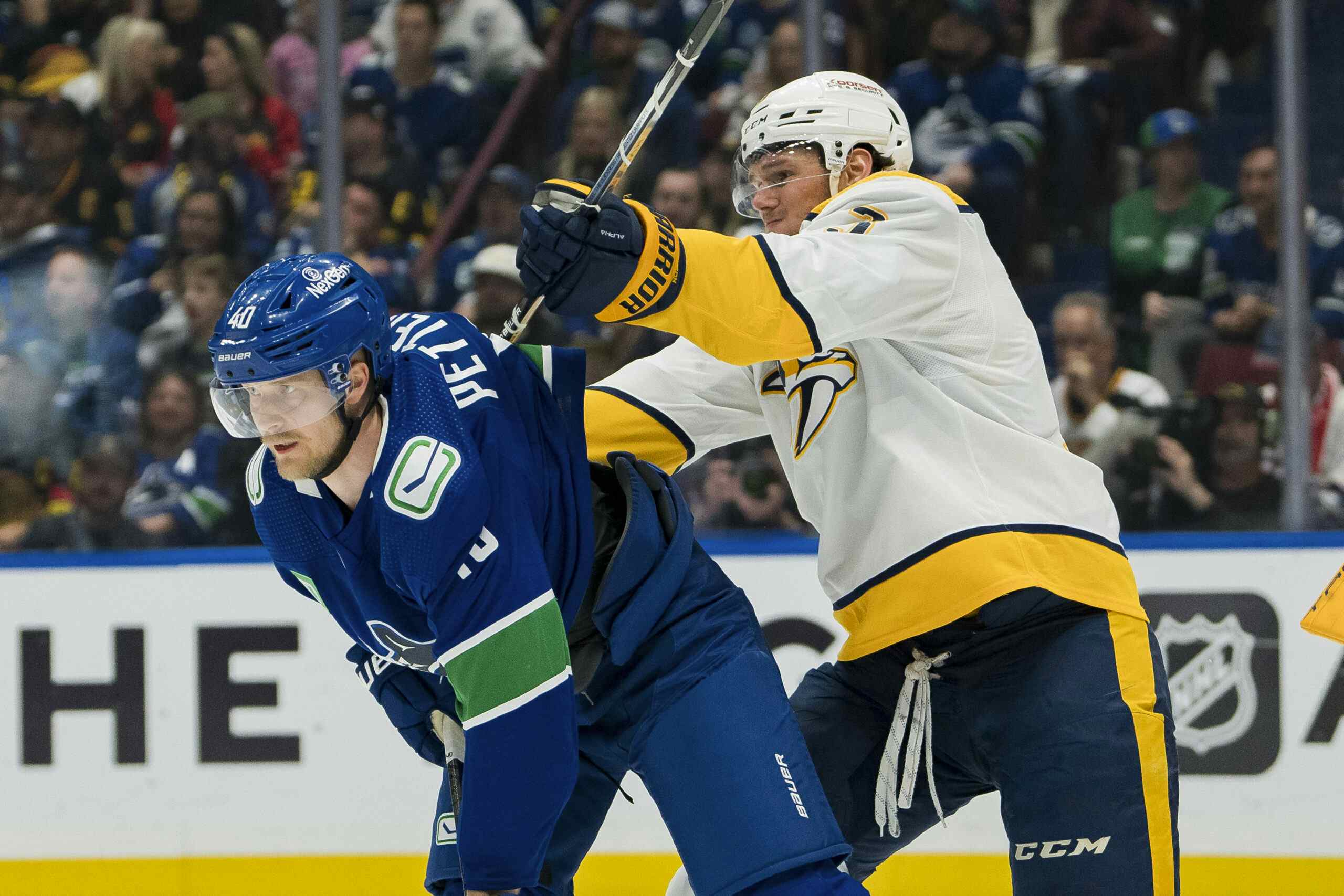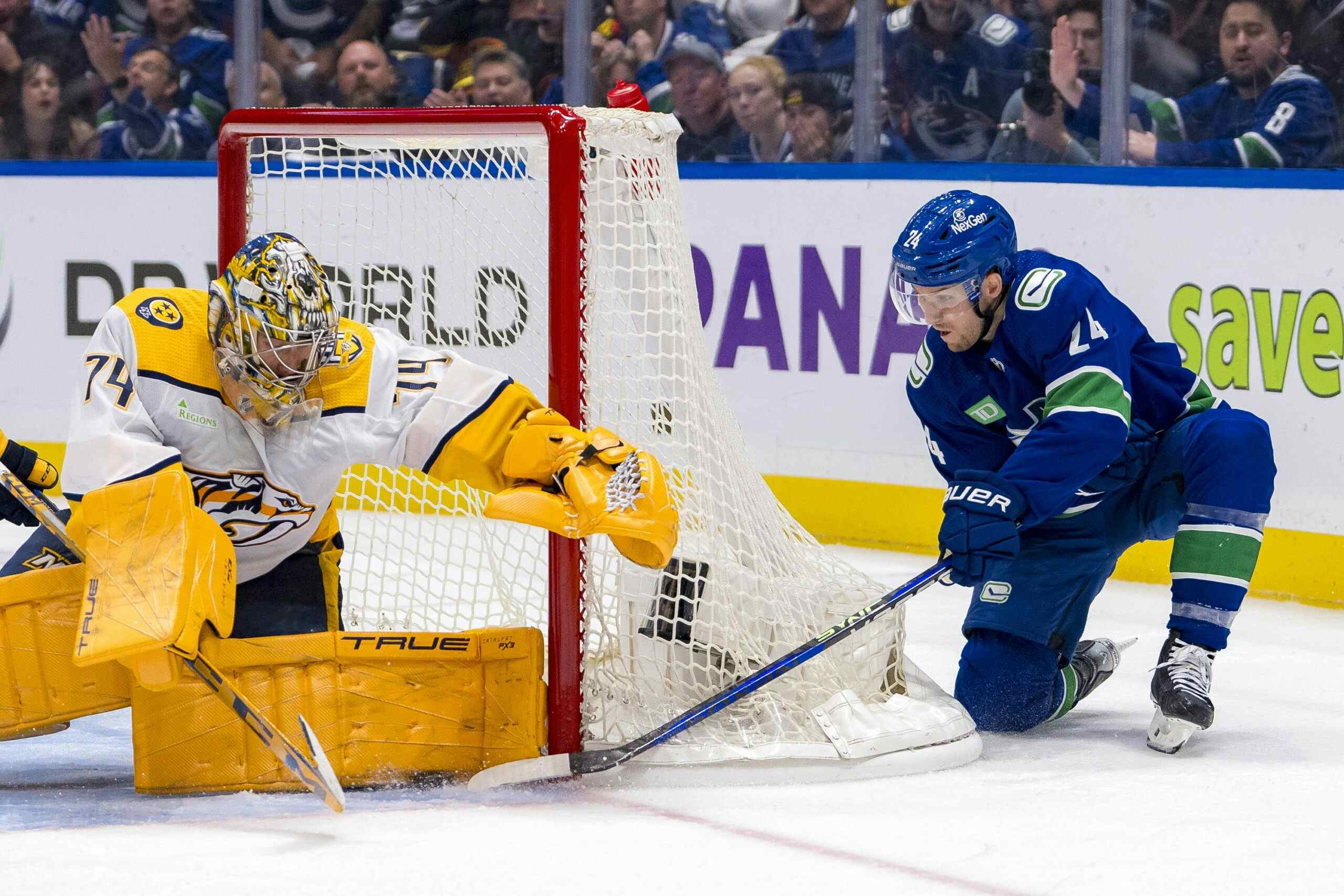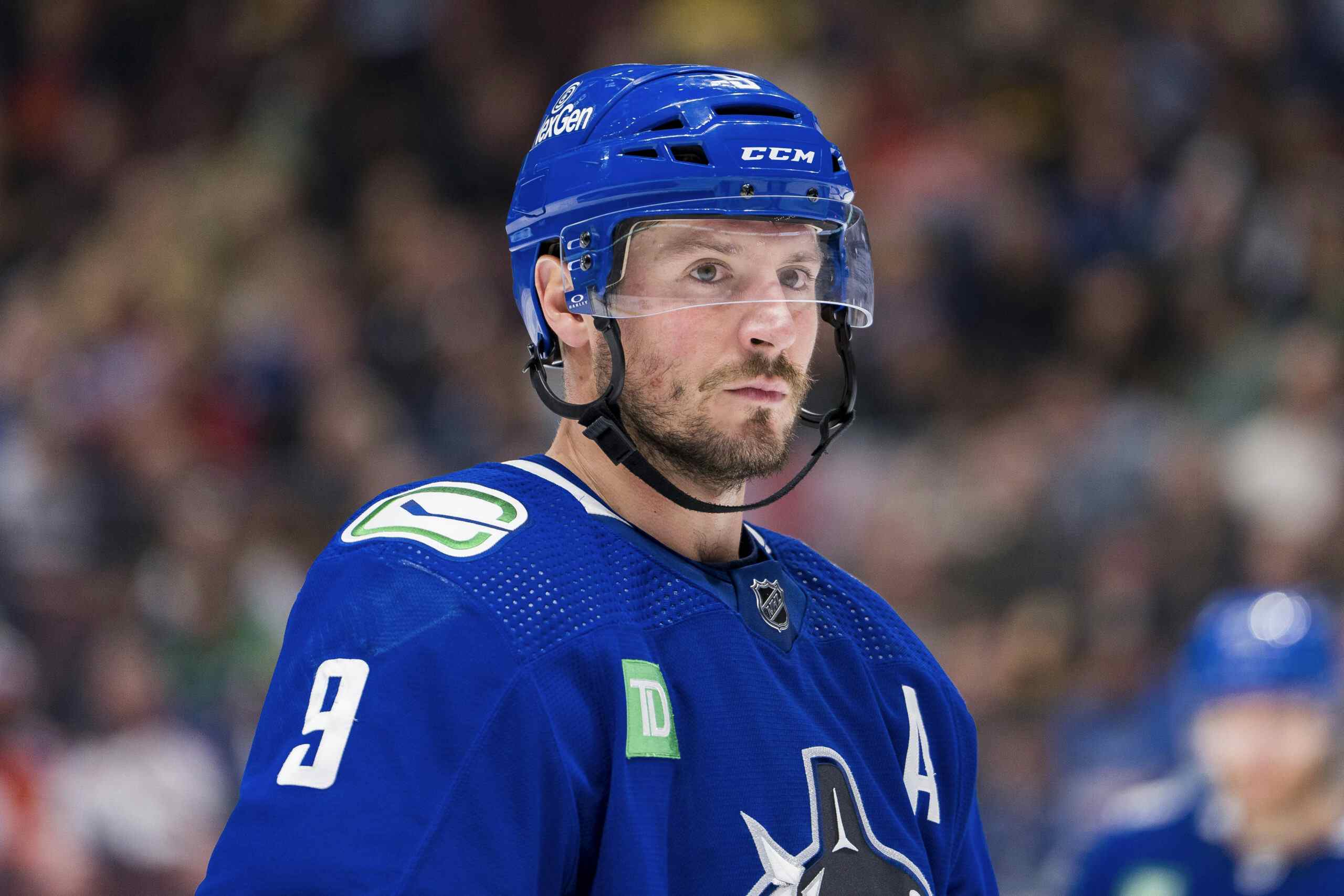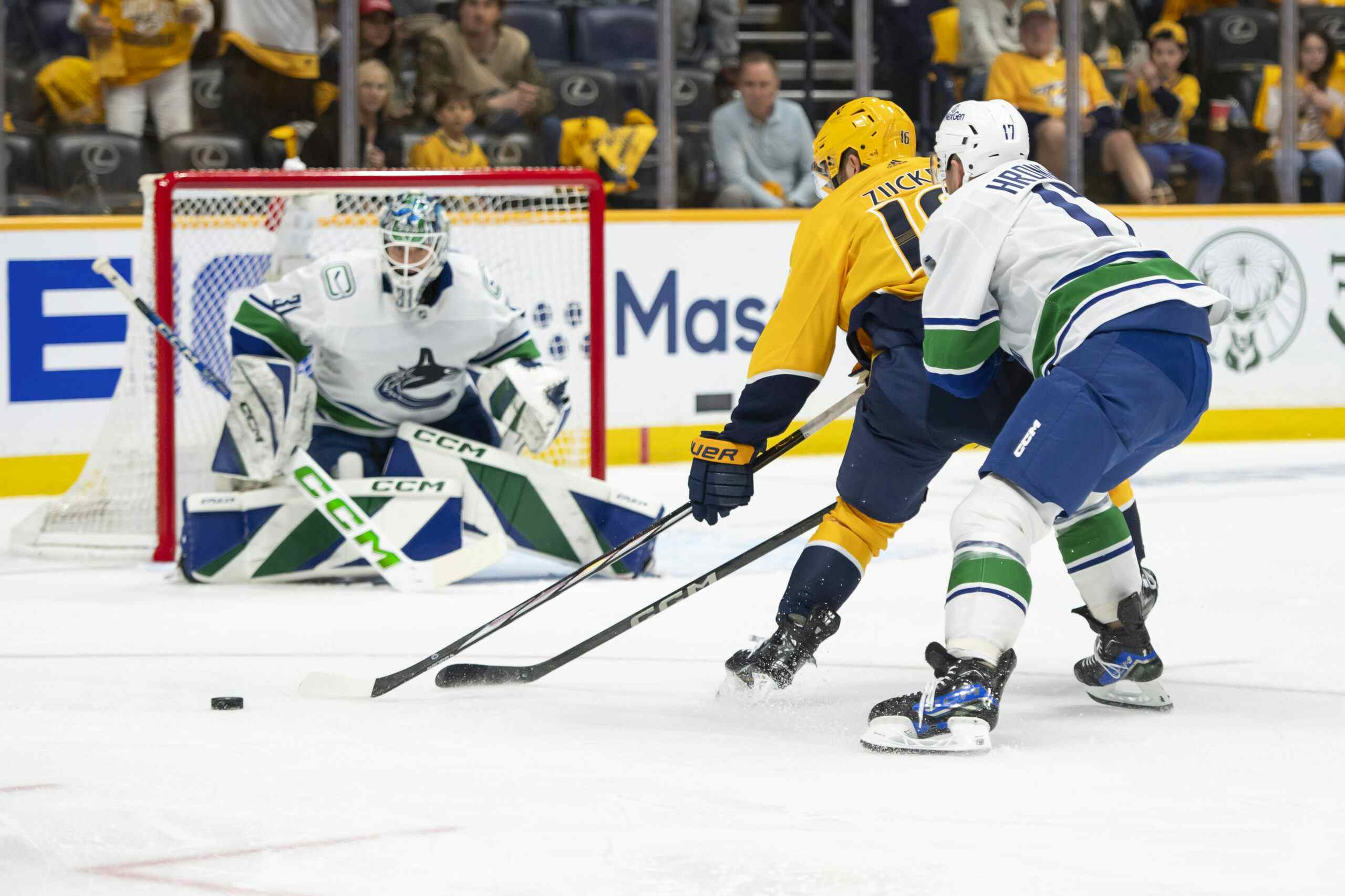Tim Thomas Versus the World
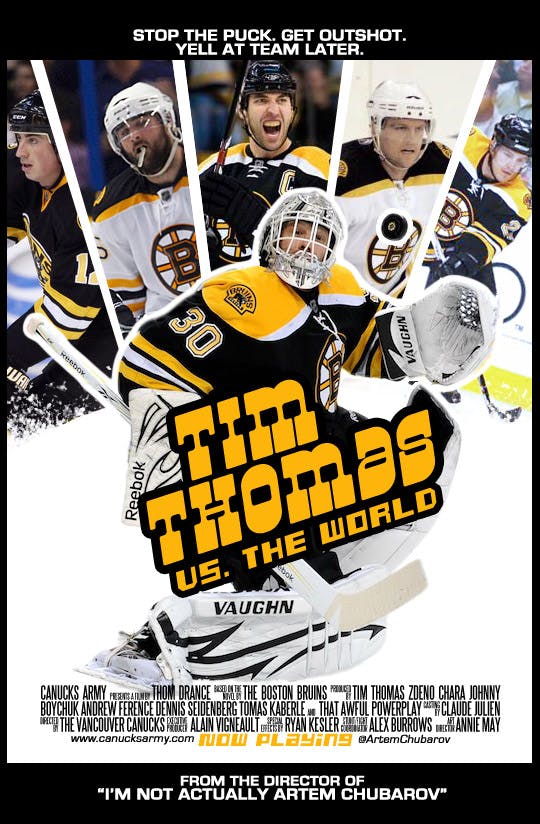
Tim Thomas is beating teams single-handedly.
Tim Thomas’ Precious Little Life:
Tim Thomas is a world-beater. Watching him stymie top offensive teams using his unorthodox “battlefly” style, it’s clear that he’s an elite goaltender at the absolute top of his game. His success also couldn’t happen to a nicer guy – Thomas has a personal flair, and a humility that is hard to root against. He’s got a great story – a 5,11 journeyman keeper from Flint, whose had team success at every stop, but still had to pay his dues in the SM-Liga (Finland’s pro-league) and only broke into the NHL permanently in 05-06. Last season he was benched in favour of Tuuka Rask, but Tim Thomas bounced back (as he so often has) with a record-setting 2010-11 regular season, and he has been even better in the playoffs.
He’s been so good in this playoffs that he’s helped disguise a fair bit of mediocrity on the Bruins back-end. Yes, the vaunted Boston Bruins defensive style that has been so successful in this postseason, could be more accurately described as: Tim Thomas versus the World.
Tim Thomas Versus the World:
It has been my impression watching the Bruins this season, that Boston’s defensive-corps are the teams achilles heel – but when I saw the scoring chance data from their series against the Lightning, I realized they are possibly even worse than I thought. We’ve heard a lot about how Boston “took off” this postseason once Julien united the Chara-Seidenberg pairing against Montreal, but beyond Chara, Boston’s blue-liners aren’t scaring anybody.
Consider that none of Boston’s defenders have started less than 50% of their even-strength shifts in the offensive zone, yet only Chara carries a corsi number worth writing home about. Tomas Kaberle and his partner Adam McQuaid carry reasonably strong possession numbers, but with the way they’re deployed (sparingly at even-strength, and starting about 60% of the time in the offensive zone) their numbers aren’t very impressive. Imagine if Edler and Ehrhoff didn’t score, weren’t trusted defensively, and put fewer points – that’s basically what McQuaid and Kaberle are.
In the lead up to the series – we heard an awful lot about the Bruins being the leagues “best-team” at 5-on-5, and certainly their 5-on-5 goal differential in the playoffs (a league leading 1.74 going into the finals) looked superficially very impressive. Suffice it to say – that number is inflated by the stellar play of Tim Thomas, and the low quality of goaltending the Bruins faced against Philadelphia.
Tim Thomas and the Infinite Sadness:
If we look at Copper and Blue’s chance data (which is less dependent on luck and arguably more reliable than goal differential), the Bruins were dramatically out-chanced by the Lightning at even-strength. The Lightning out-chanced the Bruins in 5 of 7 games, and finished with with an overall EV chance differential of -20. Even the Bruins “shut-down” pair were out-matched, both Chara and Seidenberg carried a -9 chance-differential, and none of the defenders posted a positive differential in the series. If the Bruins had lost the series, no one would have been surprised – but Thomas wouldn’t allow it.
Tim Thomas Gets it Together:
There is nothing as dangerous in the NHL playoffs as a hot-goalie, and Boston’s Tim Thomas has been better than sex this postseason. His play has been stellar enough to mask the sins of Boston’s cement-shoed blue-liners. To quote Derek Zona: “Thomas’ Bruins were outmatched in every area by the Lightning, but Thomas held them in nearly every game and delivered them to the Stanley Cup finals. Tampa… outplayed the Bruins by a wide enough margin that only superhuman goaltending could do them in. And it did.”
Tim Thomas Versus the Universe:
Now, I’m sure Bruins fans will point to their blue-liners stellar +/- numbers as evidence that this analysis is Canucks-fan homerism. But if we look at the how the Bruins defenders have benefited from otherworldly goaltending and the bounces, those +/- numbers become much less impressive. The Bruins defender who has benefited the least from Tim Thomas’ stellar play is Seidenberg, and even he enjoys a 922 SV% at even-strength. Chara, Ference and McQuaid have been especially lucky, as Tim Thomas’ SV% is closer to .945 when they’re on the ice ice 5-on-5.
Because what remains of the playoffs (6 games at most) doesn’t provide us with a large enough sample size, we can’t predict that these percentages will regress to the mean. It’s terrifyingly possible that Boston’s lack of blue-line quality won’t catch up to them, and that Tim Thomas’ stellar play could indeed steal them another seven game series and the Stanley Cup. But when you look at the discrepancy, in speed and quality, between Vancouver’s forwards and the Bruins defenders – the Bruins defenders will likely continue to be exposed (especially the bottom two pairings). Vancouver out-chanced Boston by at least six, and as much as fourteen at even-strength in game 1, so if the Bruins hope to hoist the cup, Tim Thomas is going to have to have the series of his life.
Will it be Tim Thomas’ Finest Hour?
Stick-tap to the wonderfully talented Annie May for designing the Tim Thomas/Scott Pilgrim poster. It’s the best part of this post!
Recent articles from Thomas Drance

